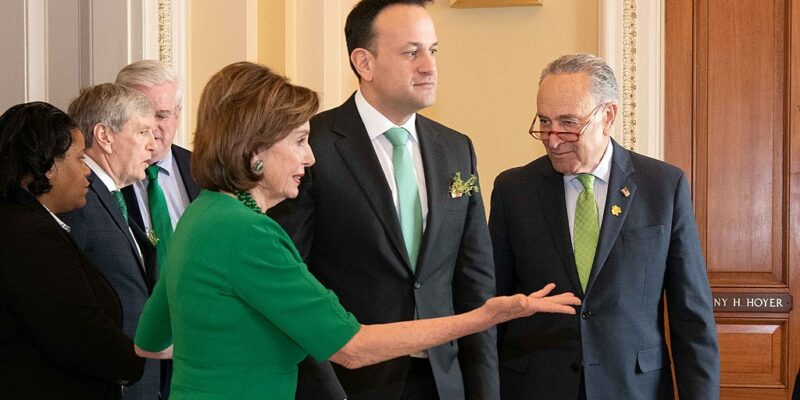
Senate Minority Leader Chuck Schumer is confronting a widening revolt inside his own party after a critical procedural vote pushed a bipartisan agreement to end the 40-day government shutdown toward final passage—even as Schumer himself opposed the deal on the floor.
Eight senators aligned with Democrats crossed the aisle Sunday to give Republicans the 60 votes needed to advance the funding package. Their defection, coming after weeks of stalemate and mounting public pressure, immediately ignited charges that Schumer has lost his grip over a caucus already rattled by a bruising year of negotiations and strategic retreats ahead of the 2026 midterms.
The shutdown—the longest in U.S. history—has rippled across the country. Grounded flights, unpaid federal workers, and courtroom disputes over food assistance have underscored the grinding toll. More than two dozen states have issued warnings about failing services as the impasse drags on.
The deal that broke the deadlock carries a conspicuous omission: it does not immediately renew the enhanced Affordable Care Act tax credits set to expire January 1. Democrats had treated the subsidies as a red line, a prerequisite for ending the standoff. Instead, Republicans offered only a promise to hold a vote on the credits by mid-December—a pledge that requires 60 votes in the Senate and faces uncertain prospects in the House. To many Democrats, the compromise reads less like a concession than a delay.
Schumer’s critics have pointed to earlier episodes as evidence of cumulative misjudgment by their leader, reports Newsweek. In March, he supported a Republican stopgap bill that omitted protections against President Donald Trump and Elon Musk’s efforts to restructure federal agencies, leaving progressives wary of his strategic instincts.
On the Senate floor before Sunday’s vote, Schumer laid out his rationale for rejecting the new deal: “America is in the midst of a Republican-made health care crisis—a crisis so severe, so urgent, and so devastating for American families that I cannot support a continuing resolution that fails to address it. I am voting NO.” But his stance did little to stem the outpouring of dissent.
The backlash erupted almost instantly. Always running for president, California Governor Gavin Newsom criticized the vote without naming names: “Tonight’s Senate vote on the federal government shutdown should have been a time for strength. Instead we saw capitulation and a betrayal of working Americans.” He added that “the American people need more from their leaders.”
Tonight’s Senate vote on the federal government shutdown should have been a time for strength.
Instead we saw capitulation and a betrayal of working Americans.
The American people need more from their leaders.
— Governor Gavin Newsom (@CAgovernor) November 10, 2025
On Twitter, Rep. Ro Khanna demanded Schumer’s ouster: “Senator Schumer is no longer effective and should be replaced. If you can’t lead the fight to stop health care premiums from skyrocketing for Americans, what will you fight for?” Rep. Alexandria Ocasio-Cortez framed the moment in moral terms: “People want us to hold the line for a reason. This is not a matter of appealing to a base. It’s about people’s lives. Working people want leaders whose word means something.”
Senator Schumer is no longer effective and should be replaced. If you can’t lead the fight to stop healthcare premiums from skyrocketing for Americans, what will you fight for?
— Ro Khanna (@RoKhanna) November 10, 2025
Tensions spilled into the House on Monday, noted Axios. In a closed-door caucus call, more than a dozen members denounced the Senate deal, calling it a capitulation. New Mexico Rep. Melanie Stansbury summarized the atmosphere: “People are f**king pissed.” One participant described near-unanimous frustration with the agreement.
Minority Leader Hakeem Jeffries urged Democrats to keep their fire trained on Republicans, not each other, warning of needless intraparty damage. Swing-district Rep. Susie Lee echoed the plea. But roughly half the speakers targeted Schumer, directly or indirectly. Rep. Pramila Jayapal posed the question aloud: either Schumer “can’t control his caucus” or he “gave his blessing” to the compromise. His office did not respond to inquiries.
There were dissenters from the revolt. Maine Rep. Jared Golden, a moderate long skeptical of shutdown brinkmanship, signaled support for the Senate approach, even as he reiterated his backing for ACA subsidies. Golden, a popular representative, recently announced that threats to his family from the left has made him decide to retire.
By afternoon, Democratic leadership circulated its guidance: “VOTE NO.”
As the bill approaches a full Senate vote, the episode has exposed deep fractures over tactics, priorities, and the party’s capacity to project unity in an era defined by factional pressure. It only took two days for Democrats to get back to normal broadcasting: total disarray.
[Read More: Supreme Court To Examine Dems’ Secret Weapon]











